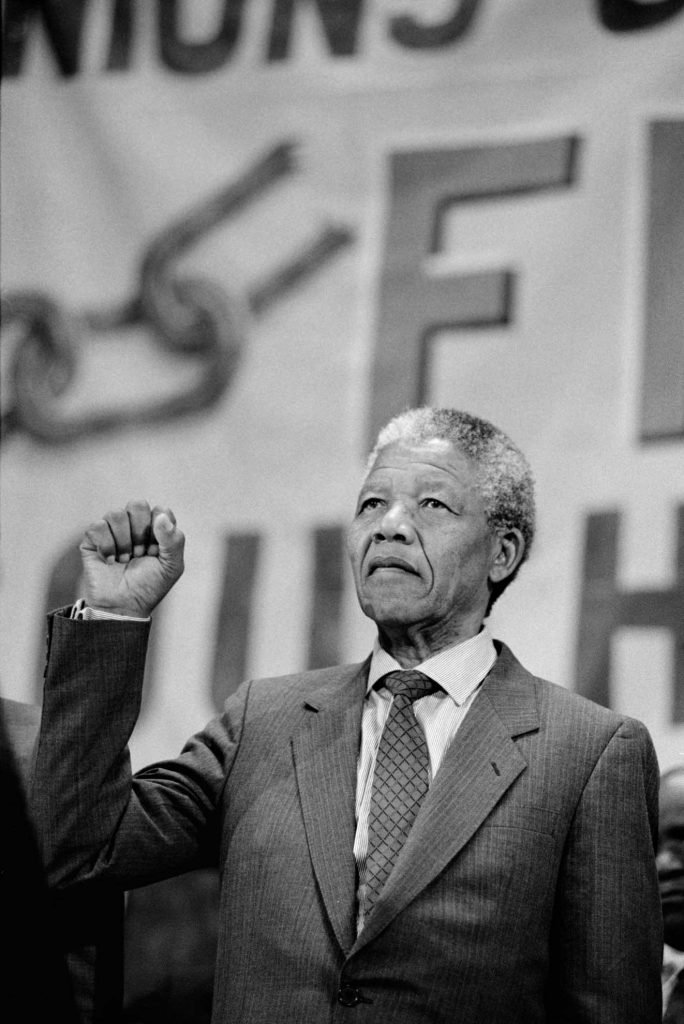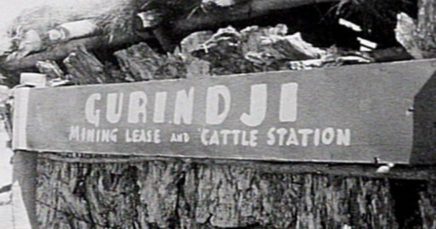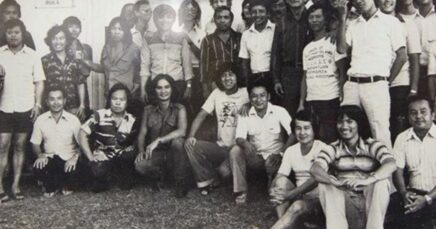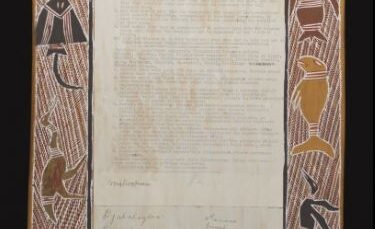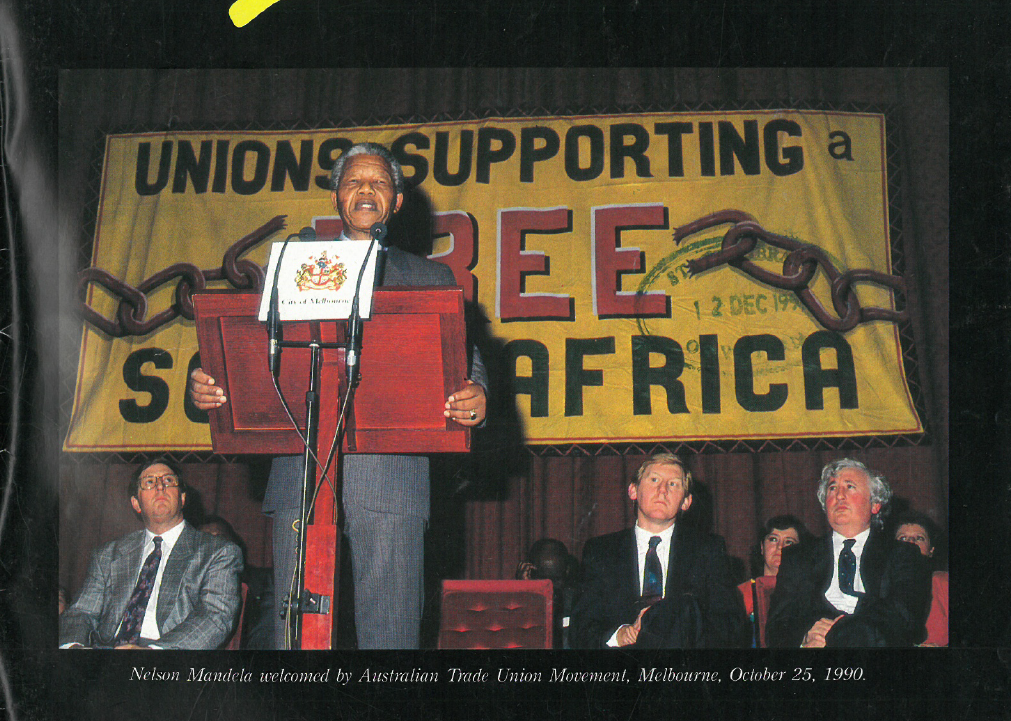
On the 25th of October, 1990, Nelson Mandela delivered a thank you speech to the Australian trade union movement at the Melbourne Town Hall.
You can listen to an excerpt from the speech here:
Mandela, the legendary leader of the anti-Apartheid struggle, had been released from imprisonment after 27 years on 11 February 1990. The struggle to end the racist Apartheid regime in South Africa was not yet over.
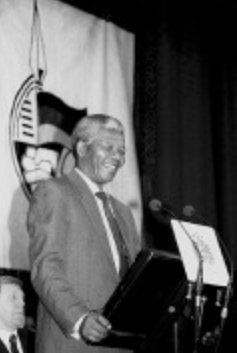
He said:
I well remember that the labour movement of this country [Australia] was among the very first, if not the first, to take solidarity action in line with the people of South Africa in the course of their struggle. It was the labour movement of this country, in the early 50s, which supported – the dockworkers in this country, who refused to unload South African ships. That was a decision that created a great deal of excitement. Which gave the people of South Africa in their struggle a lot of strength, and a lot of hope. It was difficult to understand how workers, thousands of miles from our shores, could take the initiative, the lead, among the workers of the world to pledge their solidarity with the people of South Africa. The feeling that we are not alone, that we have millions of workers behind us is a factor which has propelled us, not withstanding, the most brutal form of oppression which we face in our country.
The Australian union movement’s support for the struggle against Apartheid is a proud part of our history. Union members took extraordinary risks to show practical solidarity with the struggle against racism and for freedom.
There is evidence of the Seamen’s Union of Australia comdemning the racist system of Apartheid as early as 1949. In the 1950s, when the South African Council of Trade Unions called for sanctions against the regime, the Seamen’s Union and the Waterside Workers’ Federation both banned South African ships. The conservative PM, Robert Menzies, tried to criminalise these actions.
These unions also contributed to the international Maritime Unions against Apartheid, which led an oil embargo against the Apartheid state.
In 1964, Waterside workers in Sydney refused to handle cargo on a ship that was believed to be carrying weapons to South Africa.
The Building Workers’ Industrial Union founded the anti-racist Friends of Africa group in 1967.
Bob Hawke, as ACTU President, made frequent statements condemning Apartheid and showing support for the movement.
In 1971, this was embodied in the union support for the boycott of the Springboks – the whites-only South African Rugby team.
Union members refused to staff planes with the Springbok team, and hospitality staff who were part of their union walked out rather than serve them. Union members joined the mass protests.
It is important to remember, this was hugely controversial at the time, and majority opinion did not support the boycott.
Hawke even received death threats. On one occasion, a plane he was flying in had to return to the airport after someone called in a bomb threat.
In 1976, immediately after the Soweto massacre, the ACTU organised a month-long ban on South African goods.
Qantas cancelled its regular twice-weekly mail run. No South African Airways flights could run for the entire month. It was estimated that over $150million worth of goods were tied up because of the ban.
As Hawke later recounted: “we had an obligation to act ahead of public opinion, to act as leaders, in the hope that the public would come to understand”.
In 1983, ACTU President Cliff Dolan helped to establish an African National Congress office in Australia. The ACTU called for mandatory sanctions against South Africa in 1985.
Mandela’s address to the trade union movement in October 1990 was at once a celebration of all that had been achieved, but also an acknowledgement of how far was still to go.
At the meeting, then ACTU Secretary Bill Kelty spoke of the movement’s admiration and respect for Mandela and the South African struggle against racism and for freedom. On behalf of Australia’s unions he donated $50,000 to the African National Congress.
During his tour of Australia, Nelson Mandela also spoke to thousands of unionists in Sydney at a meeting organised by the NSW union movement and held at the Sydney Opera House.
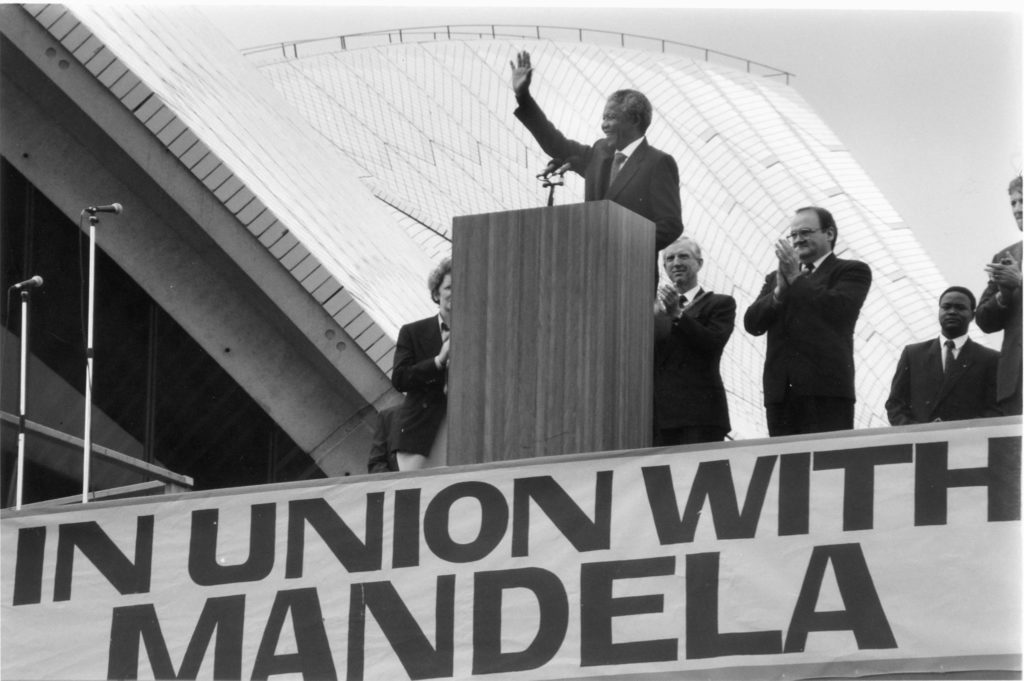
In 1994, following South Africa’s first democratic election, Nelson Mandela was elected as President of his nation.
